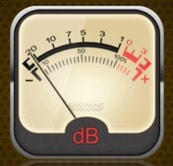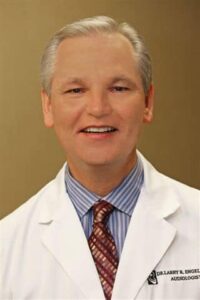 Common wisdom says that if you want to reduce the possibility of commoditization, it’s important to differentiate your services from those provided by others. The Crabby Audiologist thinks it’s more difficult to do that in states where audiologists are required to have both an audiologist license and a hearing aid dispenser license. No other similar healthcare profession is burdened with dual licensure expenses and requirements.
Common wisdom says that if you want to reduce the possibility of commoditization, it’s important to differentiate your services from those provided by others. The Crabby Audiologist thinks it’s more difficult to do that in states where audiologists are required to have both an audiologist license and a hearing aid dispenser license. No other similar healthcare profession is burdened with dual licensure expenses and requirements.
In 32 states, audiologists are permitted to dispense hearing aids as part of their audiology license. In 9 states (Hawaii, Iowa, Kansas, Kentucky, Nevada, New Jersey, New York and Virginia), audiologists are required to obtain a license as a hearing aid dispenser in addition to their audiology license. In the District of Columbia and 9 other states (Arizona, Arkansas, California, Illinois, Minnesota, Nebraska, New Hampshire, Texas and Pennsylvania), audiologists must comply with some part of the hearing aid dispenser license requirements in addition to the audiology license.
Guest Editor Larry Engelmann, AuD, (Audiology Associates, Oklahoma City, Oklahoma) has written extensively about audiology licensure issues and joins us today to explain how Oklahoma removed the dual licensure requirement for audiologists. Is it possible to use regulatory challenges in the 18 dual licensure states so that audiologists can practice their full scope of practice under their own law? Can changes to the law be accomplished without the political challenge of bringing the issue to state legislatures?
By Larry Engelmann, AuD
For any profession, mandated duplication of state licensure is superfluous and a fiscally unreasonable burden on individuals when they are expected to conform to two licensing laws when both laws allow for the individuals to exercise some of the same, or similar, duties. Audiologists are non-physician members of the healing arts doctoring professions and are point-of-entry professionals licensed to diagnose and treat patients with hearing and balance disorders, to their full scope of practice.
Scope of Training
Included in their scope of practice are fitting and selling hearing aids to patients and providing patients with the necessary counseling and aural rehabilitation related to the adaptation and utilization of hearing correction technology. For licensure, their profession’s education and training requirements are completion of a four year baccalaureate degree followed by a four year professional doctor of audiology degree.
On the other hand, hearing aid dealers test hearing for the purpose of fitting hearing aids, fitting and selling hearing aids, and advising their customers on how to use and adapt to the instruments properly. For licensure, their occupation’s education and training requirements generally are a high school diploma and on-the-job training.
In some states, audiologists are required to hold “dual licensure” as audiologists and a separate hearing aid dealers’ license, even though hearing aids and treatment are part of an audiologist’s scope of practice. Conversely, there are no states that require hearing aid dealers to hold a dual license or take any part of an audiologist’s state licensing examination. Consumer protection, and appropriate consumer recourse, is provided by each profession’s or occupation’s respective licensing laws.
Redundant dual licensure adds no benefit or added protection to the consumer. Other professions recognize this, for example:
- Physicians are neither required to become a licensed physician’s assistant (PA) nor are physicians required to take any part of the PA’s licensing examination.
- Dentists are neither required to become a licensed dental hygienist (DH) nor to take any part of the DH’s licensing examination. And, so it should follow that;
- Audiologists should neither be required to be a licensed hearing aid dealer (HAD) nor should audiologists be required to take any part of the HAD’s licensing examination.
Purpose of Licensing
Licensing laws and licensing boards exist solely to provide consumer protection and to ensure the public that minimum competencies are demonstrated. When a state requires an audiologist to be licensed by the audiology licensing board and by the hearing aid dealer’s licensing board, consumers do not receive “double consumer protection”.
By forcing dual licensure, the hearing aid dealer’s licensing board is essentially usurping the authority of the audiology licensing board, since hearing aids are included in the scope of practice of audiologists. It is unreasonable for two state regulatory agencies to be designed to operate this way, especially when it provides no additional protection to the consumer. Dual licensure creates an unnecessary duplication of state resources, and more importantly, creates confusion for the public.
Further, it is an affront to the work done by the Doctor of Audiology schools, the National Boards of Examiners in Audiology and Speech-Language Pathology, and the individual State Boards of Audiology to also require that the hearing aid dealer’s licensing board, which effectively certifies a minimal level of competency for high school graduates to fit and sell hearing aids, also certify an audiologist’s minimum level of competency for knowledge, skills and competencies already included in the curriculum of every accredited doctoral program.
Legal Reason to Exempt Audiologists from Dual Licensure in Oklahoma
In 1983, the dual licensure issue for audiologists was resolved by the Oklahoma Attorney General’s opinion. In part, he writes:
“In light of the definition of rehabilitation, the statutory authority for audiologists to provide rehabilitative services for individuals who have or are suspected of having hearing disorders would include the fitting and dispensing of hearing aids. Under Oklahoma law, however, audiologists are not the only individuals who may dispense hearing aids.”
“The State Board of Health has the power and duty to issue rules and regulations, not inconsistent with the laws of this state or of the federal government, which are necessary or useful to regulate in the public interest the practice of fitting and dealing hearing aids and licensing qualified individuals for the practice.”
“As a result, your question becomes whether the State Board of Health has the authority to impose additional licensing requirements on audiologists who want to sell hearing aids or whether such additional requirements are inconsistent with the audiology licensing statutes. The Oklahoma Supreme Court has held that an agency created by statute ….. cannot expand those powers by its own authority.”
“Where, as here, the ordinary meaning of the words used by the Legislature in defining the practice of audiology includes the fitting and dispensing of hearing aids, the State Board of Health does not have the authority to impose additional requirements or limitations upon such practice. In fact, to allow the Board to require additional licensing of an audiologist would be inconsistent with the legislative intent as expressed in 59 O.S. 1601 et seq. (1981).”
“It is, therefore, the official opinion of the Attorney General that audiologists licensed pursuant to 59 O.S. 1601 et seq. (1981), are exempt from the rules and regulations of the State Board of Health concerning licensure of hearing aid dealers and fitters. As a result, a licensed audiologist may lawfully sell a hearing aid in the State of Oklahoma without holding a license issued by the State Board of Health pursuant to 63 O.S. 1-1750 (1981).”
As a result of this opinion, the language used in the Audiology Act and the Hearing Aid Dealers and Fitters Regulations{{1}}[[1]]Oklahoma Hearing Aid Dealers & Fitters Regulations: Section 310:25 – 1-3[[1]] exempts one another from their respective licensing requirements.
*Featured image courtesy of drawception.com









In the state of virginia, audiologist petitioned to change the law but we’re denied. The reason, a large number of audiologist fail the state exam. To pass the state exam, a score of 65% is required.